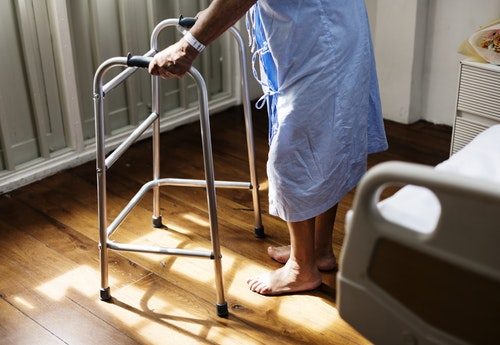Unfortunately, elder abuse is more common than one might expect. According to a study conducted by the Medical University of South Carolina, each year one in ten adults over the age of sixty are victims of abuse. According to the National Center on Elder Abuse (NCEA), domestic elder abuse refers to mistreatment committed by someone who is caring for the elderly person; for example, a spouse, a sibling, a child, a friend, or a caregiver.
People might think that nobody would hurt their own parent or their own sibling, but according to Dan Reingold, president and CEO of the Hebrew Home, a long-term care facility in Riverdale, NY, “The answer is: about 2 million people.”
In order to help provide protection from these abusive crimes, a handful of nursing homes around the nation have created shelters within their own facilities to provide emergency short-term housing and health care services for abuse victims. The Riverdale, NY Hebrew Home initiated the effort in 2005 when it created an on-site shelter for victims of elder abuse, “The Harry & Jeanette Weinberg Center for Elder Abuse Prevention.” Since 2005, at least six other nursing homes have duplicated this effort, and officials from the Hebrew Home are considering developing several more such centers.
Elder abuse is very similar to domestic violence and child abuse; however, public awareness about the problem is decades behind. According to the NCEA, domestic abuse is defined as any of the following types of mistreatment against an elderly person: 1) physical abuse, 2) emotional abuse, 3) sexual abuse, 4) exploitation (generally financial), 5) neglect, and 6) abandonment.
Another Problem: Institutional Abuse
Institutional abuse refers to any type of mistreatment that occurs at a residential facility, this can be a nursing home or an assisted living facility, or a group home, a foster home, or a board and care facility. This type of abuse is generally perpetrated by someone with a legal or contractual obligation to provide some type of care or protection for the elderly patient.
Although there are several distinct types of abuse, it is not unusual for the elderly victim to experience more than one form of mistreatment at the same time or at different times. For example, a caregiver that is improperly and forcefully restraining a patient may also be over-drugging the patient and subjecting them to other forms of physical abuse and neglecting to provide them with proper medication, food or hygiene at the same time.
According to Bonnie Brandl, director of the National Clearinghouse on Abuse in Later Life, an advocacy group in Madison, Wisconsin, there may be a higher percentage of abuse among elderly adults with lower cognitive abilities. In effect, wrongdoers may think this makes their potential victims more vulnerable and less likely to report the crime.
Warning Signs Of Nursing Home Abuse
As a friend or family member of an elderly adult, it’s important to remain vigilant about elder abuse. If you notice any unexplained bruising, pressure marks, abrasions or burns, these may be signs of neglect, physical abuse or mistreatment. Also watch out for any changes in mood or behavior such as withdrawal from normal activities or a sudden change in alertness, or unusual depression as these may be indications of emotional abuse.
Bruising around the breasts or around the genital area may be signs of sexual abuse, and strained relationships with caregivers may be a sign that something is wrong. Also watch out for bedsores, fowl smells, poor hygiene, unusual weight loss and unkempt living quarters, as these are all possible signs of neglect.
Need an attorney for a nursing home abuse case in Marietta? If you suspect that your elderly loved one is a victim of nursing home neglect or abuse, we urge you to contact a Marietta nursing home abuse attorney from Jones & Swanson. We are extremely familiar with the signs of nursing home abuse and we would be honored to help you fight this silent epidemic and help bring the perpetrator to justice.
Categories: Nursing Home Abuse, Nursing Home Neglect




